Eiko Takamatsu
Nascimento : 1893-07-02, Tokyo, Tokyo Prefecture, Japan
Morte : 1957-10-04
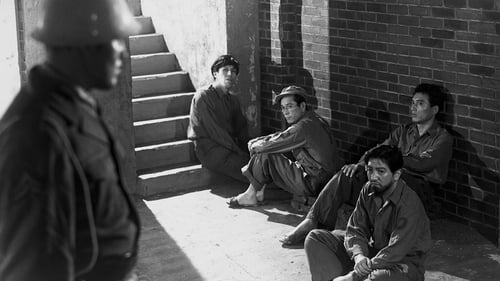
Um grupo de soldados japoneses comuns é preso por crimes contra a humanidade, eles próprios vítimas de uma nação que se recusa a carregar o seu fardo como um todo.
Da coleção "Criterion Collection": "Entre os primeiros filmes japoneses a lidar diretamente com as cicatrizes da Segunda Guerra Mundial, por ser um filme com conteúdo inflamatório, o filme foi engavetado pelo estúdio por três anos antes de ser lançado."
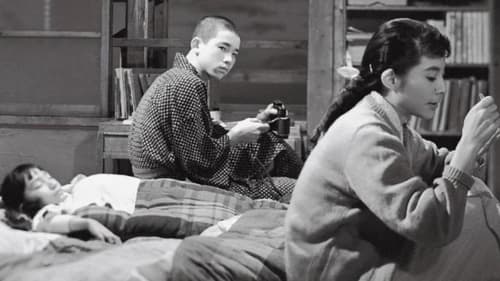
A coming-of-age story portrayed as the loss of all youthful illusions. Sixteen-year-old Yoichi dreams of becoming a sailor. His parents are fishmongers, and Yoichi lives together with them and his four siblings in cramped living conditions. His beloved younger sister is given to a wealthy, childless uncle; his best friend moves away; the girl he fell in love with from afar is with someone else: little by little, Yoichi loses all the people that are important to him.

A young student falls into a hopeless romantic attraction to a sick girl, whom he can only see from afar.

Carmen falls in love with an artist in this sequel to Carmen Comes Home. The film is noted for being entirely shot with canted (Dutch) camera angles.

Hiroo Ikeda movie
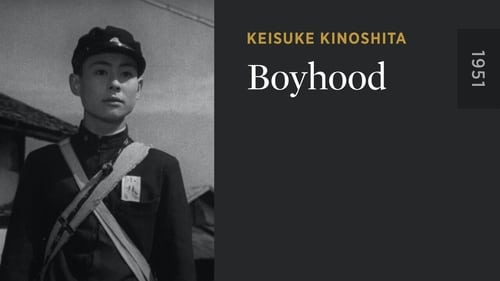
When a family has to relocate due to the war, they are ostracized by their new community.

A girl who'd left her hometown for the exciting adventure of the big city returns home years later for a visit, soon somehow causing scandal.
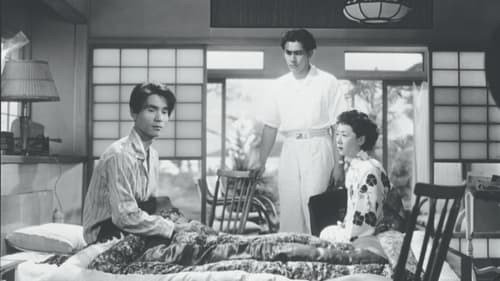
A jewelry store president begins to fall for the doctor treating her husband's illness.

Tsune
Tokiko is a mother patiently waiting for her husband's return from the war when her 4-year old son becomes ill. She takes him to the doctor for treatment but has no way of paying. She resorts to prostitution. One month later her husband returns from WWII to find his desperate wife, who tells him the truth. Together they must deal with the consequences.

A young lawyer falls in love with the daughter of his former professor, whom he's hired to tutor his children.

Old housekeeper
A Japanese war widow recalls her love affair with her deceased husband.
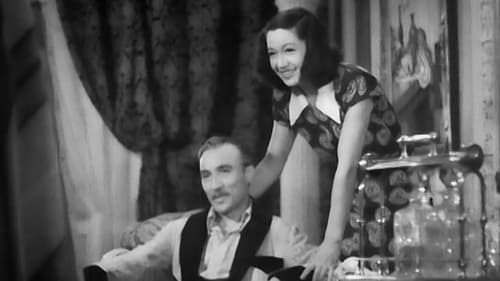
After Japan's loss in the war, the wealthy, cultured, liberal Anjo family have to give up their mansion and their way of life. They hold one last ball at the house before leaving. The seemingly cold, cynical son secretly grieves for his defeated father and the values that the war destroyed, while the daughter tries to prevent father from taking his life and to find her own place in the new Japan.

Tome
Tashiro encontra um menino abandonado em um vilarejo assolado pela guerra e o leva para casa, na tentativa de conseguir que algum vizinho o adote. Ninguém parece aceitar a responsabilidade nem mesmo por uma noite, até que a viúva Otane, a contragosto, fica com a criança. De início, o relacionamento entre os dois não vai muito bem, até que o dia em que menino foge de casa. Seu desaparecimento faz com que Otane perceba o quanto o ama.
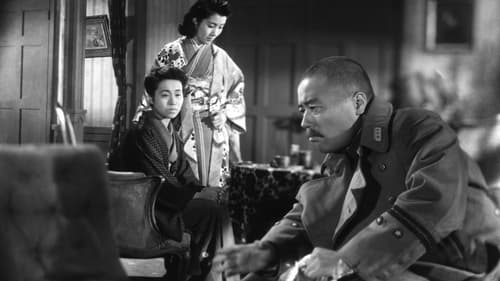
Old domestic servant
A Japanese family weathers much hardship after their military uncle comes to live with them during WWII.

Pretty Oshige is deceived by her first love. After this, she lives a hard lifestyle, working at a number of jobs. Her only pleasure is her nephew, who eventually becomes a merchant marine. When Oshige meets her old love ten years later, she is able to forgive him and even thank him for the path her life has taken.

A spirited young teacher challenges the conservative school employing her with liberal thinking and teaching methods.

Weed with Flowers

Eiko is an innocent young lady born into a wealthy family with nothing to offer. She was good at singing, and lived her life playing around with her cronies, organizing music concerts and so on. However, things change when her father's business fails and she was suddenly thrown out into the world without any foundation. Eiko has no one to support her after she loses her social status, and her only tutor, Shinnosuke (Natsukawa Daijiro) was the only one who was sincere. Eiko is a stickler for using everything she can get her hands on, and she quickly moves into Shinnosuke's house.

Matsuya
Two childhood friends go their own ways but meet again some years later after they have both married. They get re-acquainted, meet each others’ families, and all is well. Then the disagreements start...

Approaching their graduation ceremony, Saegusa, Sanae, and their classmates go on an overnight trip to Hakone with their teacher Ms. Kawahara, who will soon leave school. They thank her doing so and go on their respective paths, ending soon their student life.

Shigeo is an aspiring writer living with his girl friend Minako and hoping for success and a better tomorrow every day. Both live on what Minako earns from working in a café. Shigeo is not happy with the situation and neither is his family who do not approve of Minako. Especially his uncle tries to convince him to leave Minako, even using his influence behind the scenes. Things start to change when Shigeo's sister pays the young couple a visit, being the first member of Shigeo's family to actually get to know Minako in person.
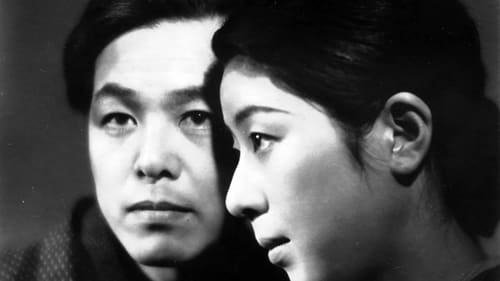
Jokou
A silk factory worker is persuaded to support her son's education up to a college level despite their poverty. Many years later, she travels to Tokyo to visit her son.

In Depression-era Japan, a courteous bus driver carries an eclectic group of passengers from the mountainous Izu to Tokyo,

dir: Teinosuke Kinugasa

Namiji's nanny
An onnagata (female impersonator) of a Kabuki troupe avenges his parents' deaths. Remade in 1963 as Yukinojô Henge.

Tokochibi's Mother
A Japanese film

Kodakara Sodo (The Treasure That Is Children) is a 1935 black and white Japanese silent film with benshi accompaniment directed by Torajiro Saito. This is a rare example of a silent Japanese slapstick film that has survived to this day.

Bridegroom's mother
This pair of gentle yet witty and inventive comedies from the director of The Neighbour's Wife and Mine typify both the formal experimentation of early Japanese sound cinema and the social milieux that Shochiku tended to depict. 'Virtually plotless, and feeling more like comic sketches than fully developed stories,' writes Arthur Nolletti, Jr, 'these light comedies, or farces, take a wholly trivial matter (often a socially embarrassing situation) and use it as a springboard for a succession of gags.' Much of the films' distinction comes from the wit of Gosho's direction, the imaginative use of the new sound technology and the charm of the acting, particularly of the heroines (Kinuyo Tanaka in Bride; Hiroko Kawasaki in Groom). Yet in both films, Gosho finds room for some shrewd observation of character and environment, subtly exploring the values and assumptions of the suburban petit bourgeoisie.

Heinosuke Gosho evokes in this film the family conflicts engendered by the eternal problem of a father who projects his professional desires on the life of his son. The sister Machiko is the essential link that will allow everyone to apologize to each other and achieve reconciliation

Japanese silent film.

Otatsu, the mother
"The Dancing Girl of Izu" tells of the story between a young male student who is touring the Izu Peninsula and a family of traveling dancers he meets there, including their youngest girl. The student finds the naïve girl attractive even though he eventually has to part with the family after spending memorable time together.

Part two of Shimizu's major silent Seven Seas, a family drama of the intertwining fates of the rich, decadent Yagibashis and the far less prosperous Sone family.

A Japanese short film, the earliest extant film of the great director Hiroshi Shimizu

Ogen
The remaining fragments of an early Ozu film. It is the simple story of two friends who live together in a poor tenement and who share about everything in life (food, hopes, work...). Everything goes well until they gallantly rescue a young (and pretty) woman injured in a road accident. Since the lady has nowhere to go, the two good-hearted friends invite her to their home. She soon becomes their housemaid and they soon begin to seek her favors. Alas, she falls for a young student she has met in the neighborhood, much to the two friends' dismay.
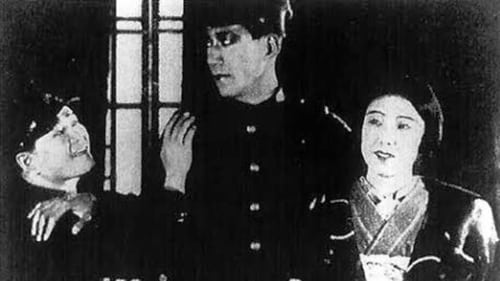
Proprietress of the rooming house
Lost silent film
























